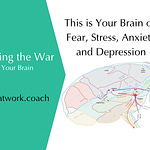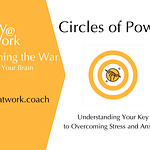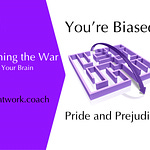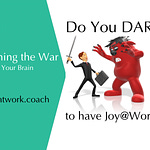In this episode we are exploring how you can influence and motivate anyone or everyone. We're even going to learn some lessons from the President of the United States and just how he won the election. Jeff sat on a bar stool at the front of the room. He had no slides, no props, just sat and talked. Within minutes, he had everybody in the room on the edge of their seats eagerly nodding and ready to follow him wherever he went. None of us in the room had met Jeff before. In fact, none of us had a clue who he was. This quiet, unassuming man simply walked to the front and sitting on the bar stool began to speak and captivated everyone. Jeff shared why some adverts worked, and some fell flat. How some adverts tapped universal appeal, and others neglected to do so. The good news is that you don’t need to spend millions of dollars on creating a fantastic TV advert to influence people. The great news is that you can easily tap into the four universal appeals. And I'll come to those four universal appeals in a moment. You'll remember in the triangle of influence that the motivation to change is the result of the evaluation of the personal benefits gained and the personal cost in the resources required to achieve a specific outcome. Whether that outcome is buying a new toothpaste or a new car, giving our time to serve in a soup kitchen or sharing our wisdom with a stranger. We weigh up what we get from the action and what it costs us. We will then be motivated to act when our perceived benefits outweigh our perceived cost. Influence is maths. When the perceived value is greater than the perceived cost, we are motivated to act on the change. If you know what I am likely to perceive as beneficial and what I perceive as costly, then you should find it easier to influence me. Influencing someone you know well When we know someone very well, we can influence them more easily. For example, if I want to go to a particular holiday destination with my wife, and she wants to go elsewhere, I might emphasise all the aspects of the type of holiday she desires (honestly) regarding my preferred destination. I might lay on some evidence to add credence to my interpretation such as photos, TripAdvisor recommendations and so on. If I want to buy a particular car model, and she would prefer another, I might focus on specific qualities of my chosen car that I know will appeal to her. It's not manipulation; it's just a conversation. It's something we all do, every day. We will sway or steer others towards our preference. We are in a position of influence every time someone allows us to communicate with them. Most of the time, we are unconsciously influencing entirely based on our personal bias. But that's selfish! Yes, you’re right. I am. So are you. So is the person beside you. I am, and you are. Even when someone is apparently altruistic, the reality is that they get something valuable personally from being so. What if I don’t know the other person well, how do I influence them? One of the key things to understand about influence and persuasion is that the idea that everyone is rational is a little misleading. OK, it is totally misleading. Because motivation - the desire to act on change in thinking and behaviour is not just maths. It's chemistry! Now you wish that you had paid more attention in science class, don't you. It's OK, I recorded an earlier PodCast on Hacking Motivation - and in it I share all about the Chemistry of Motivation and how you can hack it to be happier. Motivation, which is the FRUIT of influence is created in large part by the neuro-chemical, Dopamine. Known as the "Happy chemical" - dopamine is the chemical you have flowing in your brain and bloodstream when you feel motivated. In part, there is a rational, conscious process - essentially the maths I outlined earlier. But PRECEDING the maths, BEFORE the rational, conscious thinking, the chemistry is already underway. Some refer to this as the Lizard response, but it's be
Share this post

LA 052: How to Influence Anyone and Everyone
www.joyatwork.coach
LA 052: How to Influence Anyone and Everyone
Feb 15, 2017
Joy@Work Podcast
Helping marketplace leaders #UnStuck their true potential to thrive in life and leadership to build a successful, sustainable business with collaborative, high performance teams and Joy@Work with practical, neuroscience-based AdvantEdge Guides and coaching.
Helping marketplace leaders #UnStuck their true potential to thrive in life and leadership to build a successful, sustainable business with collaborative, high performance teams and Joy@Work with practical, neuroscience-based AdvantEdge Guides and coaching.Listen on
Substack App
RSS Feed
Recent Episodes














LA 052: How to Influence Anyone and Everyone